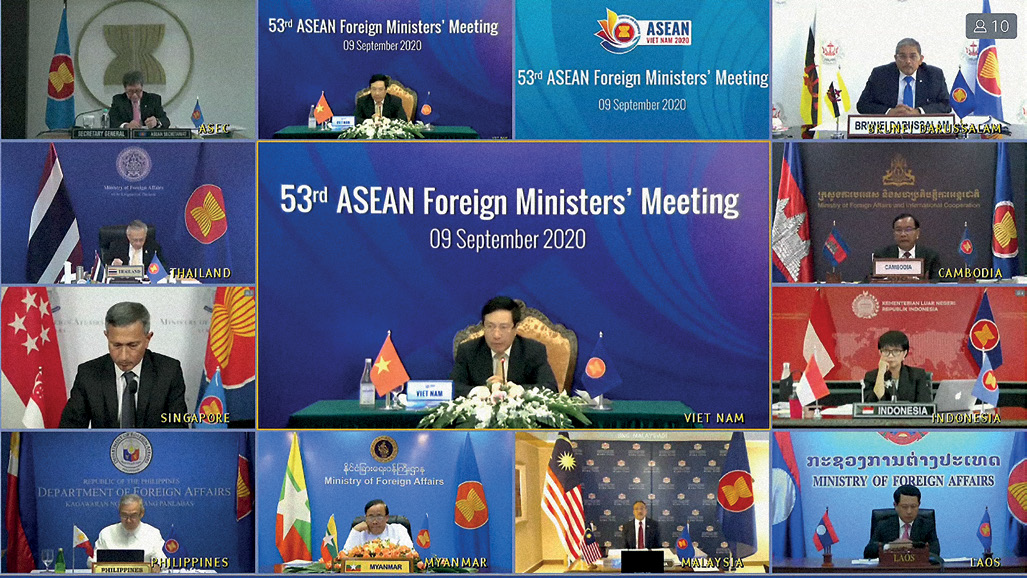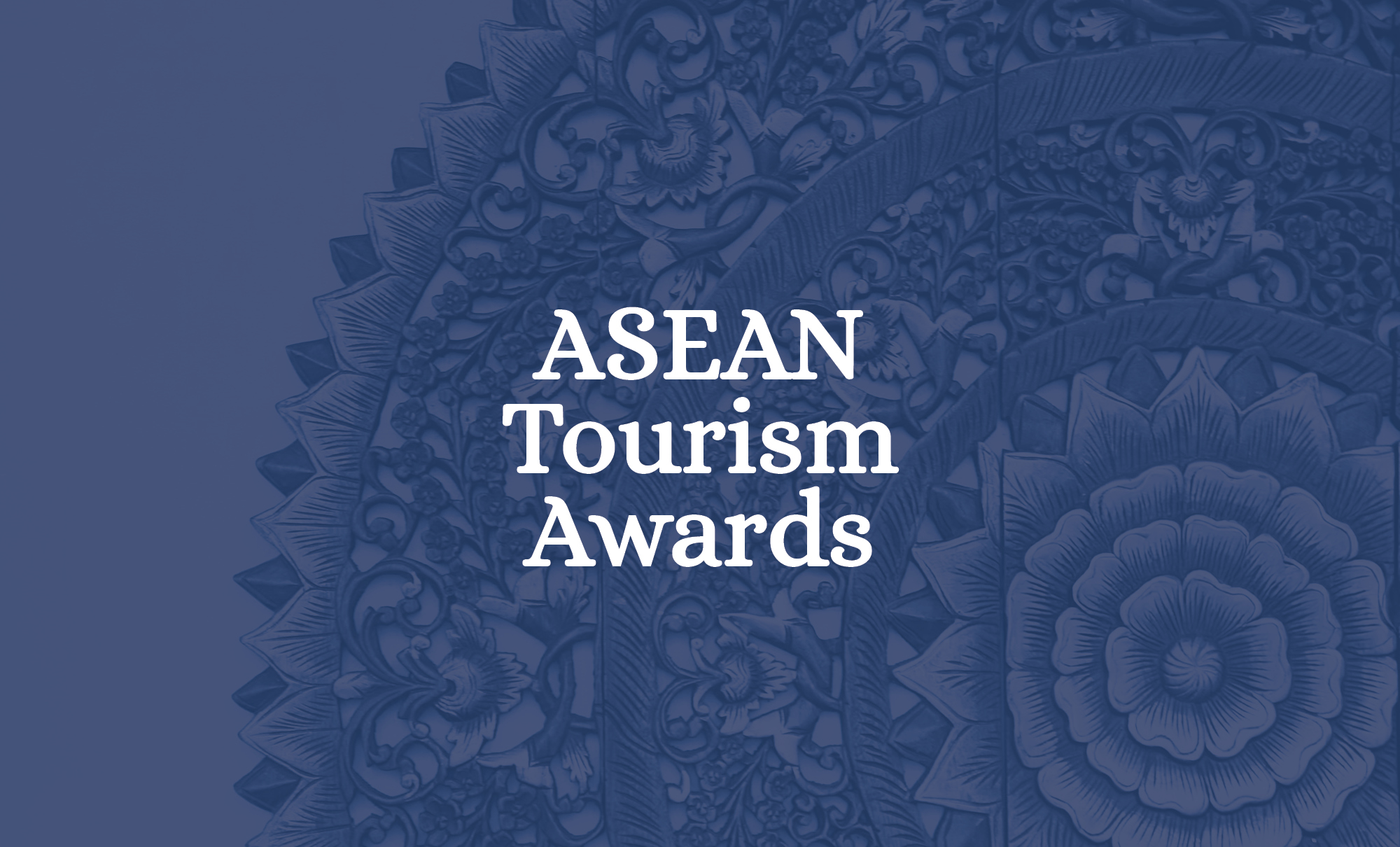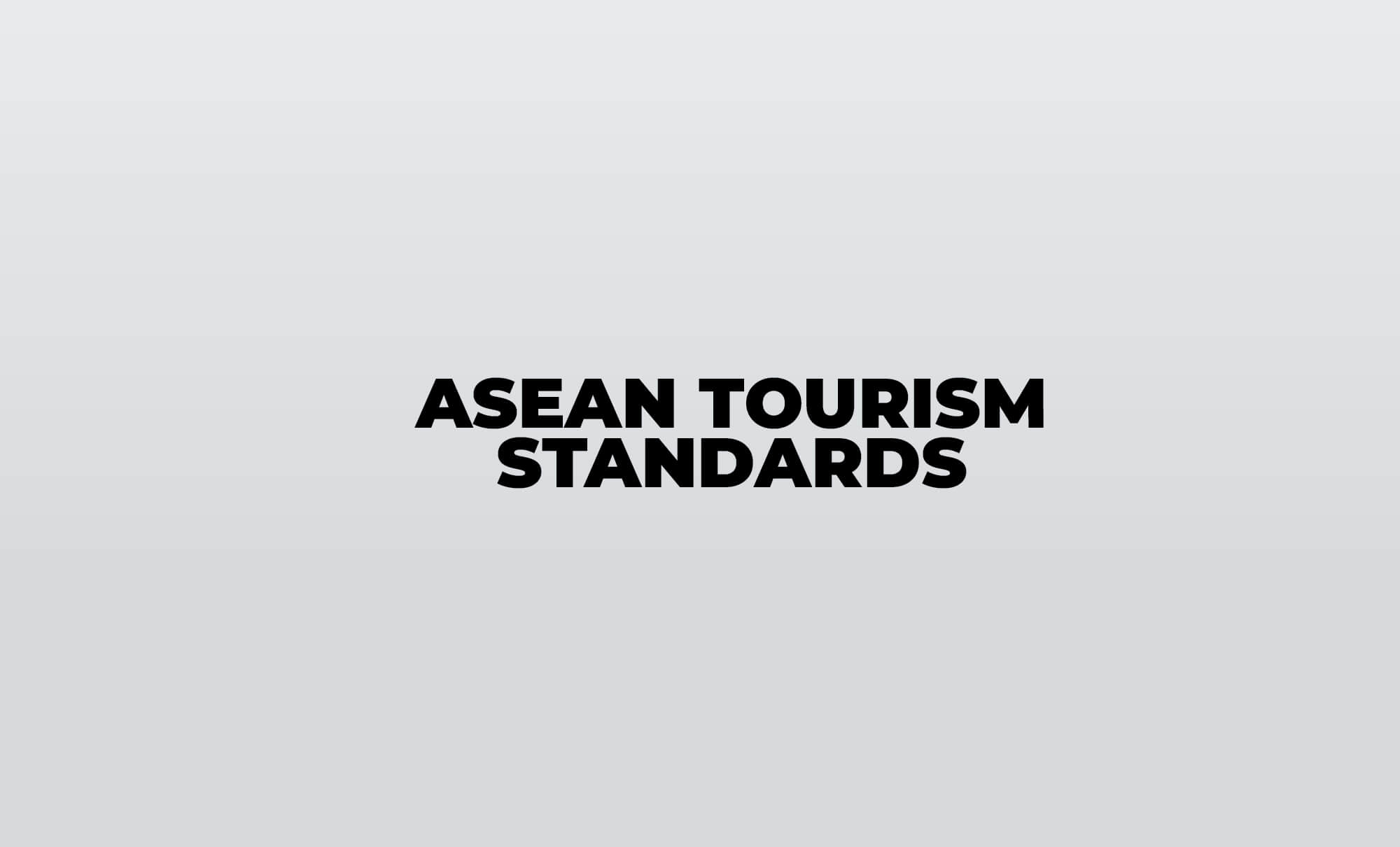



In yet another first, the 53rd ASEAN Foreign Ministers’ Meeting (AMM) and Related Meetings were convened virtually from 9-12 September 2020. In view of the unfolding COVID-19 pandemic, major power rivalry and looming economic recession, the 53rd AMM provided an important opportunity for the ministers to discuss ways and means to advance ASEAN’s Community building efforts, and to chart the direction for ASEAN to rise above the adverse impact of the pandemic. Equally important, the meetings allow ASEAN to solidify its relations with external partners.
Notwithstanding the COVID-19 challenges, and more than eight months into Viet Nam’s ASEAN Chairmanship, substantive progress has been realised in the major deliverables under the theme “Cohesive and Responsive ASEAN.” It is noteworthy that the Chair had successfully led ASEAN to face COVID-19 head-on through its determined and creative efforts to move ASEAN activities from physical platforms into the digital milieu to ensure that work of community building continues unabated.
High on the agenda of the 53rd AMM, which was convened on 9 September 2020, were ASEAN’s Community building, pandemic response, regional architecture as well as regional and international issues. The ministers noted the progress in community-building, especially in the implementation of the ASEAN Political Security Community Blueprint, and commended the initiative to commence discussions on a Post-2025 ASEAN Community Vision. With respect to COVID-19, the ministers reaffirmed the commitment to work together in addressing the pandemic under a whole-of-community approach, and supported efforts towards economic recovery post-COVID-19. Among the initiatives in the works are an ASEAN Travel Corridor Arrangement to maintain inter-connectedness in the region through facilitating essential travels, establishing an ASEAN Small and Medium Enterprises Recovery Facility, and developing an ASEAN Comprehensive Recovery Framework. Measures to strengthen regional health resilience were also discussed, and the ministers highlighted the need for ASEAN to work together to ensure fair and equitable global access to affordable and safe COVID-19 vaccines for all.
Against the backdrop of increasing major power rivalry, the ministers shared views on maintaining ASEAN Centrality in the regional architecture, and discussed developments in the South China Sea, the Korean Peninsula, and Rakhine State. In reference to the South China Sea, the ministers reaffirmed in the Joint Communiqué of the 53rd AMM the need to pursue peaceful resolution of disputes in accordance with the universally recognised principles of international law, including the 1982 United Nations Convention on the Law of the Sea (UNCLOS). At this particularly challenging time, the ministers called for the strengthening of ASEAN-led mechanisms and continued to advocate for an open, transparent, inclusive, and rules-based regional architecture that serves as the foundation for regional peace, stability, and prosperity.
A special feature of the 53rd AMM is the convening of the 27th ASEAN Coordinating Council (ACC) and a Special Session of the ACC on Sub-Regional Development back-to-back with the AMM. The ACC, which is an important mechanism in coordinating ASEAN’s efforts across three Community pillars, during its 27th Meeting, discussed and reviewed the progress in the implementation of major deliverables of this year’s chairmanship, including the Mid-term Reviews of the ASEAN Community Blueprints 2025 and the Master Plan on ASEAN Connectivity (MPAC) 2025. In addition, the ACC discussed the review of the implementation of the ASEAN Charter, efforts to enhance ASEAN’s identity and visibility through the display of the ASEAN flag and use of the ASEAN anthem, as well as the development of a narrative of ASEAN Identity.
The ministers also had extensive discussions on ASEAN’s COVID-19 responses. In this regard, they supported amending the Terms of Reference of the COVID-19 ASEAN Response Fund to facilitate contributions from external partners. They also supported the expeditious establishment of the ASEAN Regional Reserve of Medical Supplies for Public Health Emergencies (RRMS) to strengthen ASEAN’s preparedness in response to public health emergencies. In addition, they endorsed the Concept Note of the ASEAN Comprehensive Recovery Framework, which serves as a basis to develop the first draft of the framework and its implementation plans. Meanwhile, the Special Session on Sub-Regional Development marked the Chair’s initiative in promoting sub-regional development as complementing ASEAN’s overall Community building efforts.
The 53rd AMM also held an Interface with the ASEAN Intergovernmental Commission on Human Rights (AICHR) Representatives on 10 September 2020. The Interface echoed the importance ASEAN attaches to the promotion and protection of human rights, especially amongst vulnerable groups in the midst of the COVID-19 pandemic. On the same day, an ASEAN Ministerial Dialogue on Strengthening Women’s Role for Sustainable Peace and Security was convened to highlight the importance of women empowerment in ASEAN Community building, and to promote a more gendered approach to peace and conflict in the region. The Dialogue also affirmed support for the women, peace and security (WPS) agenda.
ASEAN’s engagement with external partners were the other highlight in the week-long ministerial discussions. The Post-Ministerial Conference (PMC) sessions with Dialogue Partners, the 10th East Asia Summit Foreign Ministers’ Meeting and the ASEAN Regional Forum (ARF) were convened on 10-12 September 2020. The constructive engagement through the ASEAN Plus One, ASEAN Plus Three, EAS, ARF, and ASEAN Defence Ministers Meeting-Plus (ADMM-Plus) continues to gain traction and contribute significantly to the strengthening of ASEAN Centrality, as well as fostering mutual trust and confidence, and reinforce an open, transparent, inclusive, and rules-based regional architecture.
The ASEAN Plus Three Foreign Ministers’ Meeting, among others, reaffirmed their commitment to the signing of the Regional Comprehensive Economic Partnership (RCEP) agreement to demonstrate the firm commitment of ASEAN and its Partners to upholding an open, inclusive, and rules-based multilateral trading system, while reiterating that RCEP remains open for India.
In the effort to further strengthen partnerships and functional cooperation with external partners, the ministers approved plans of action with Canada, India, the Republic of Korea, New Zealand, and the U.S for the 2021-2025 period. At the same time, ASEAN continues to enlarge its diplomatic footprint globally through its enhancement of relations with Cuba and South Africa as arrangements are being finalised for their ascension to the Treaty of Amity and Cooperation in Southeast Asia (TAC), bringing the total of non-Southeast Asian signatories to 42. ASEAN also welcomed France and Italy as the regional organisation’s latest Development Partners, paving the way for closer cooperative ties and partnership.
From a broader strategic perspective, ASEAN continues to affirm the ASEAN Outlook on the Indo-Pacific (AOIP), and encourages external partners to collaborate in promoting its principles. ASEAN also enjoined the Dialogue Partners to explore practical cooperation in the key areas of maritime cooperation, connectivity, sustainable development, and economic cooperation.
With the pandemic raging globally, ASEAN and its Dialogue Partners underscored the importance of stepping up collaboration to address the challenges brought about by COVID-19, including the provision of medical supplies and vaccines, and the importance of trade and supply chain connectivity. ASEAN welcomed the interest from Dialogue Partners to contribute to the COVID-19 ASEAN Response Fund, as well as other ASEAN initiatives such as the RRMS, in addressing the pandemic.
In the security domain, the 27th ASEAN Regional Forum (ARF) was successfully convened on 12 September 2020, which saw the adoption of the Hanoi Plan of Action to Implement the ARF Vision Statement II (HPOA II) for 2020-2025. The HPOA II sets out the vision and modalities for the 27 ARF Participating Countries to expand and deepen security cooperation in the region, including addressing current and emerging security challenges. In addition to a vibrant discussion on regional affairs and international developments, the Forum also noted the adoption of the Guide to ARF Processes, Procedures, Practices and Protocol, and welcomed the publication of the 2020 ARF Annual Security Outlook (ASO) which saw a record of 22 contributions.
In conclusion, the 53rd AMM/PMCs and related meetings were convened at a unique moment and through a special modality which has never been used for any preceding AMMs. The fact that these proceedings were attended by ministers from across 12 time zones is a mark of ASEAN Centrality and underscores the importance external partners accord to this series of meetings. It also speaks to the value and relevance of ASEAN’s convening power, as well as its leadership in facilitating regional cooperation and discourse.








